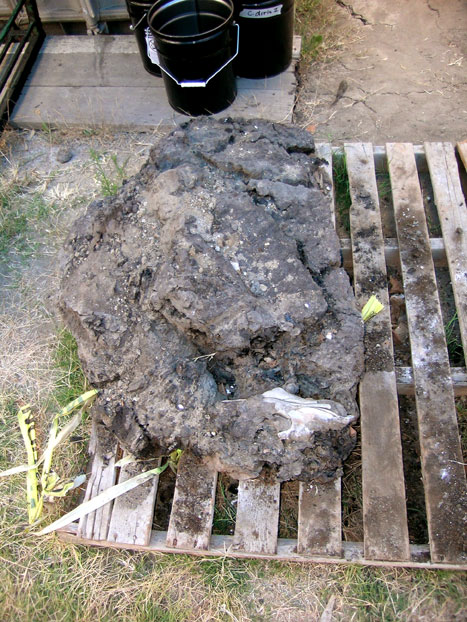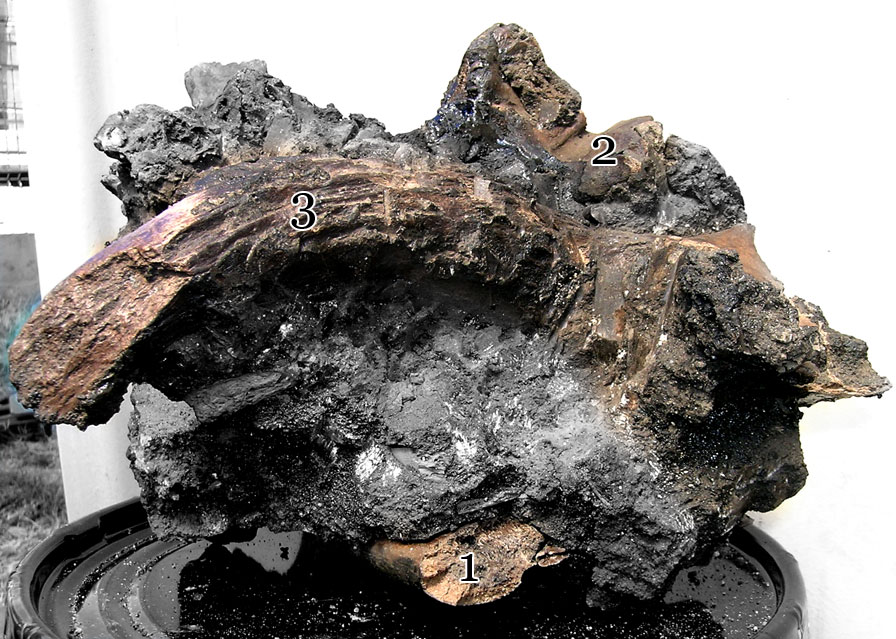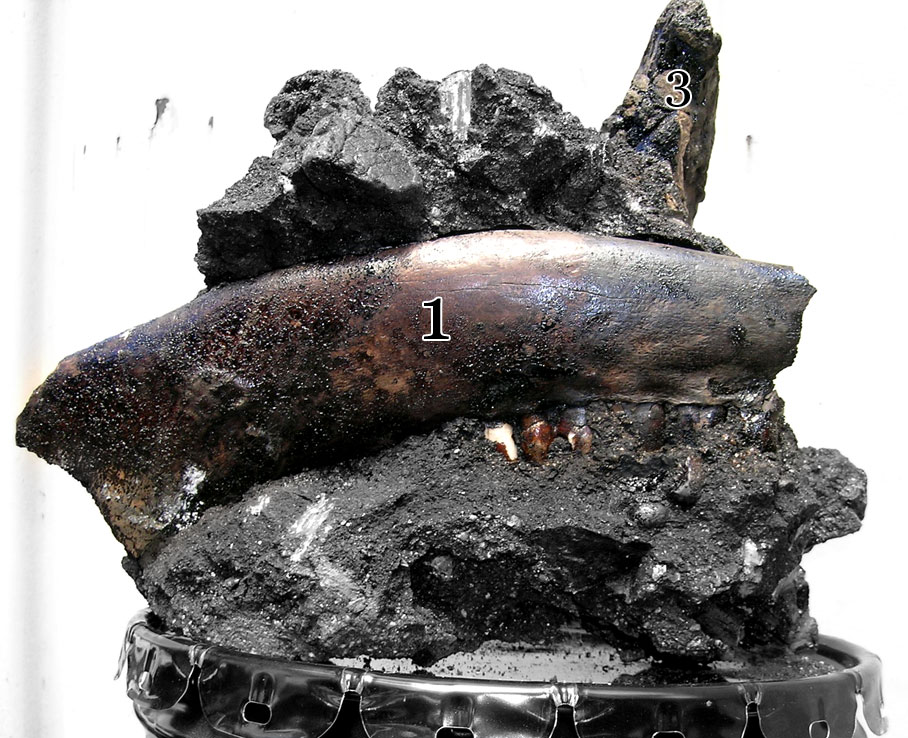In addition to our 23 fossils boxes (and 327 buckets, 20 plaster jackets, assorted ziploc baggies, etc etc) we've acquired a number of what we've been affectionately referring to as fossil blobs. Several of the deposits were too large to place into buckets, but too small to box up. Consequently, they were carefully chipped out the ground, lifted onto wooden palates, and brought over to the Pit 91 compound. The asphaltic matrix (the dirt and "tar" between the bones) has melted and softened in the sun since the blocks' removal, giving some of them a distinctly melty appearance. Hence: fossil blobs! The 3' x 4' x 2' blob pictured above is the largest of them all, and we originally thought that the dire wolf skull (lower right hand corner) was the most interesting thing about it. However, as we reached the end of the blob, we uncovered the following melange:
Several of the deposits were too large to place into buckets, but too small to box up. Consequently, they were carefully chipped out the ground, lifted onto wooden palates, and brought over to the Pit 91 compound. The asphaltic matrix (the dirt and "tar" between the bones) has melted and softened in the sun since the blocks' removal, giving some of them a distinctly melty appearance. Hence: fossil blobs! The 3' x 4' x 2' blob pictured above is the largest of them all, and we originally thought that the dire wolf skull (lower right hand corner) was the most interesting thing about it. However, as we reached the end of the blob, we uncovered the following melange:
I know it doesn't look like much, but fossil Number 1 is actually one side of a bison jaw, Number 2 is the back half of a sabertoothed cat skull, and Number 3 is the horn core of a bison skull!
Paleontology -- especially paleontology at Rancho La Brea -- is occasionally more about nimble fingers and well-trained eyes than it is about the science of evolutionary biology. With these three specimens, that has definitely been the case. There was so much matrix surrounding the fossils, and so few immediately identifiable features that it took us about four days to fully realize what, exactly, we were digging up. The bison jaw was the first thing we were able to identify --
the teeth are kind of a dead give away (the jaw is upside-down, mind you)-- and after that the sabertoothed cat skull quickly came into view:
 back
back top
topAnd finally, the horn core. Now. I desperately wish I could take credit for identifying this rare and unusual specimen, but, in actuality, I stared at the dang thing for two days straight without realizing what I was looking at.
I lose five paleontology points.





3 comments:
Nice blog! The tar photographs so well that I can almost smell it...keep up the hard work!
That was quite the pleasure to watch as it "unfolded." :-D
Do we have any "after" pictures? (Basically, I'm pretty proud of how nice it came out, especially as we left it in "blob-form" for the exhibit and I'd love to make everyone else see it too) ;-)
Post a Comment